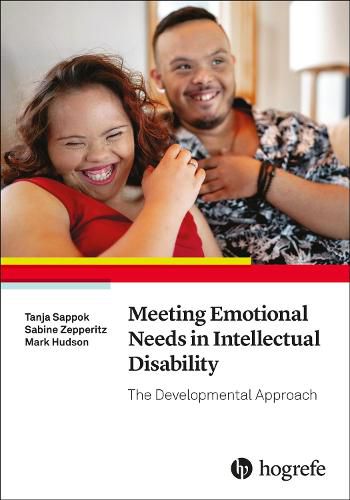Readings Newsletter
Become a Readings Member to make your shopping experience even easier.
Sign in or sign up for free!
You’re not far away from qualifying for FREE standard shipping within Australia
You’ve qualified for FREE standard shipping within Australia
The cart is loading…






Using a developmental perspective, the authors offer a new, integrated model for supporting people with intellectual disability (ID). This concept builds upon recent advances in attachment informed approaches, by drawing upon a broader understanding of the social, emotional, and cognitive competencies of people with ID, which is grounded in developmental neuroscience and psychology. The book explores in detail how challenging behaviour and mental health difficulties in people with ID arise when their basic emotional needs are not being met by those in the environment. Using individually tailored interventions, which complement existing models of care, practitioners can help to facilitate maturational processes and reduce behaviour that is challenging to others. As a result, the fit of a person within his or her individual environment can be improved. Case examples throughout the book illuminate how this approach works by targeting interventions towards the person’s stage of emotional development. This book will be of interest to a wide range of professionals working with people with ID, including: clinical psychologists, psychiatrists, occupational therapists, learning disability nurses, speech and language therapists, and teachers in special education settings, as well as parents and caregivers.
$9.00 standard shipping within Australia
FREE standard shipping within Australia for orders over $100.00
Express & International shipping calculated at checkout
Using a developmental perspective, the authors offer a new, integrated model for supporting people with intellectual disability (ID). This concept builds upon recent advances in attachment informed approaches, by drawing upon a broader understanding of the social, emotional, and cognitive competencies of people with ID, which is grounded in developmental neuroscience and psychology. The book explores in detail how challenging behaviour and mental health difficulties in people with ID arise when their basic emotional needs are not being met by those in the environment. Using individually tailored interventions, which complement existing models of care, practitioners can help to facilitate maturational processes and reduce behaviour that is challenging to others. As a result, the fit of a person within his or her individual environment can be improved. Case examples throughout the book illuminate how this approach works by targeting interventions towards the person’s stage of emotional development. This book will be of interest to a wide range of professionals working with people with ID, including: clinical psychologists, psychiatrists, occupational therapists, learning disability nurses, speech and language therapists, and teachers in special education settings, as well as parents and caregivers.